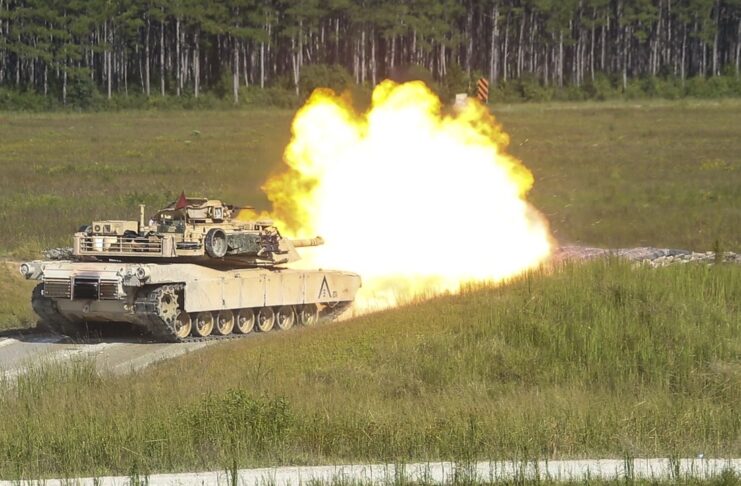All eyes are on Germany and the United States, as the pair struck a deal Wednesday to send battle tanks to a war-weary Ukraine. The dual announcement mends a growing rift among allies in arming Ukraine with more sophisticated weaponry and represents a sudden reversal in policy for the Biden administration. Another in a long line of calculated risks, the U.S.'s decision is more a symbolic move to preserve the alliance and invoke greater allied involvement.
Ukraine President Volodymyr Zelensky praised the United States for its new commitment, just days after his advisor slammed Western indecision for killing more of his countrymen. “Every day of delay is the death of Ukrainians. Think faster,” Ukraine's Mykhailo Podolyak tweeted.
Germany's indecision in the face of Ukraine and Poland's calls for a Leopard 2 tank transfer hails from a long-held reluctance to step up militarily following World War 2 and its fervent commitment to dialogue over war. It also represents concerns among some in Germany that supplying tanks risks dangerous escalation and wider conflict. Berlin made its own commitment of tanks contingent on the U.S.'s decision to send some of its own.
The Biden administration's midweek announcement put an end to the standoff between the two nations and served to satisfy Ukraine's demands. “The United States and Europe are fully united,” President Biden stated Wednesday. While the shift in policy for Washington D.C. is politically expedient, it's not altogether practical.
Ukraine could see Leopard 2 tanks in as little as three months, but American-made tanks will be supplied to Ukraine through the assistance initiative funding route. Of the more than 100 tanks pledged by Western allies, the 31 M1 Abrams tanks could take months to reach the front lines, long past Russia's planned spring offensive.
The Biden administration's decision defied even recent Pentagon assessments that the M1 Abrams tank would prove difficult to fuel and maintain across Ukrainian territory. “The Abrams tank is a very complicated piece of equipment. It's expensive, it's hard to train on. … It is not the easiest system to maintain. It may or may not be the right system,” the Pentagon's number 3 spokesman told reporters just last week.
Former U.S. Army General Gen. Robert B. Abrams, after whose father the M1 Abrams tank is named, echoed Pentagon concerns. Despite the superiority of the American-made tank to Russian tanks, supply chains and logistics will prove challenging. “The time it would take to get there — to be able to build up the supply stockage, to deliver the vehicles, to train the crews, to train the mechanics, to gather everything you'd need — how long would that take,” General Abrams said in a New York Times interview.
The Biden administration's newest commitment of heavy weaponry could prove not only impractical, but also disastrous. President Biden emphasized U.S. tanks poses no “offensive threat to Russia.” The Kremlin on Thursday once again accused the United States of “direct involvement in the conflict.” While the West has grown accustomed to Russia's threatening rhetoric, each new stepped-up show of allied support risks escalation and retaliation. The impact of Ukraine-bound Abrams tanks is far less practical than it is political, at least on the surface. President Biden's deal served to undo long-held German commitment to mere dialogue, unlocking a host of better suited Leopard 2 tanks to Ukraine's fight. Resolving the trans-Atlantic row once again brought unity to the alliance and satisfied Ukraine's demands. It could also inch the U.S. and its allies ever closer to war with Russia. Political, yes, but prudent?
The opinions expressed in this article are those of the author and do not necessarily reflect the positions of American Liberty News.
READ NEXT: Trump to Republicans: DON'T Touch Popular Program Swallowing Up Our Economy >>


